I'm working on upgrading my project from Django 2 to Django 3, I have read their release notes of Django 3 and there is a point that I don't really understand what it will impact to my current project. Here they say:
As I understand, if we try to call Model.save(), it would always create a new record instead of updating if the model is an existing record. For example:
car = Car.objects.first()
car.name = 'Honda'
car.save() # does it INSERT or UPDATE? I suspect it is an "INSERT" statement as their explanation and "UPDATE" statement in Django 2.
I have had an experimented and it is still the same behaviour as Django 2, not sure what they mean.
In [5]: u = User.objects.first()
(0.001) SELECT "accounts_user"."id", "accounts_user"."password", "accounts_user"."last_login", "accounts_user"."is_superuser", "accounts_user"."username", "accounts_user"."first_name", "accounts_user"."last_name", "accounts_user"."is_staff", "accounts_user"."is_active", "accounts_user"."date_joined", "accounts_user"."email", "accounts_user"."avatar", "accounts_user"."last_location"::bytea, "accounts_user"."uuid", "accounts_user"."country", "accounts_user"."city", "accounts_user"."phone" FROM "accounts_user" ORDER BY "accounts_user"."id" ASC LIMIT 1; args=()
In [6]: u.save()
(0.006) UPDATE "accounts_user" SET "password" = 'pbkdf2_sha256_sha512$180000$FbFcNuPMrOZ6$GwIftEo+7+OpsORwn99lycye46aJn/aJNAtc50N478Y=', "last_login" = NULL, "is_superuser" = false, "username" = 'email0@mail.com', "first_name" = 'Noah', "last_name" = 'Spencer', "is_staff" = false, "is_active" = true, "date_joined" = '2020-05-12T07:06:20.605650+00:00'::timestamptz, "email" = 'email0@mail.com', "avatar" = 'account/user_avatar/example_HseJquC.jpg', "last_location" = NULL, "uuid" = 'f6992866-e476-409e-9f1b-098afadce5b7'::uuid, "country" = NULL, "city" = NULL, "phone" = NULL WHERE "accounts_user"."id" = 1; args=('pbkdf2_sha256_sha512$180000$FbFcNuPMrOZ6$GwIftEo+7+OpsORwn99lycye46aJn/aJNAtc50N478Y=', False, 'email0@mail.com', 'Noah', 'Spencer', False, True, datetime.datetime(2020, 5, 12, 7, 6, 20, 605650, tzinfo=<UTC>), 'email0@mail.com', 'account/user_avatar/example_HseJquC.jpg', UUID('f6992866-e476-409e-9f1b-098afadce5b7'), 1)
Update:
In [38]: u1 = User.objects.first()
(0.000) SELECT "accounts_user"."id", "accounts_user"."password", "accounts_user"."last_login", "accounts_user"."is_superuser", "accounts_user"."username", "accounts_user"."first_name", "accounts_user"."last_name", "accounts_user"."is_staff", "accounts_user"."is_active", "accounts_user"."date_joined", "accounts_user"."email", "accounts_user"."avatar", "accounts_user"."last_location"::bytea, "accounts_user"."uuid", "accounts_user"."country", "accounts_user"."city", "accounts_user"."phone" FROM "accounts_user" ORDER BY "accounts_user"."id" ASC LIMIT 1; args=()
In [39]: u1.pk
Out[39]: 1
In [40]: u2 = User(pk=1)
In [41]: u2.email = 'email@email.com'
In [42]: u2.save()
(0.006) UPDATE "accounts_user" SET "password" = '', "last_login" = NULL, "is_superuser" = false, "username" = 'email@email.com', "first_name" = '', "last_name" = '', "is_staff" = false, "is_active" = true, "date_joined" = '2020-05-13T01:20:47.718449+00:00'::timestamptz, "email" = 'email@email.com', "avatar" = '', "last_location" = NULL, "uuid" = '89ba0924-03a7-44d2-bc6d-5fd2dcb0de0b'::uuid, "country" = NULL, "city" = NULL, "phone" = NULL WHERE "accounts_user"."id" = 1; args=('', False, 'email@email.com', '', '', False, True, datetime.datetime(2020, 5, 13, 1, 20, 47, 718449, tzinfo=<UTC>), 'email@email.com', '', UUID('89ba0924-03a7-44d2-bc6d-5fd2dcb0de0b'), 1)
